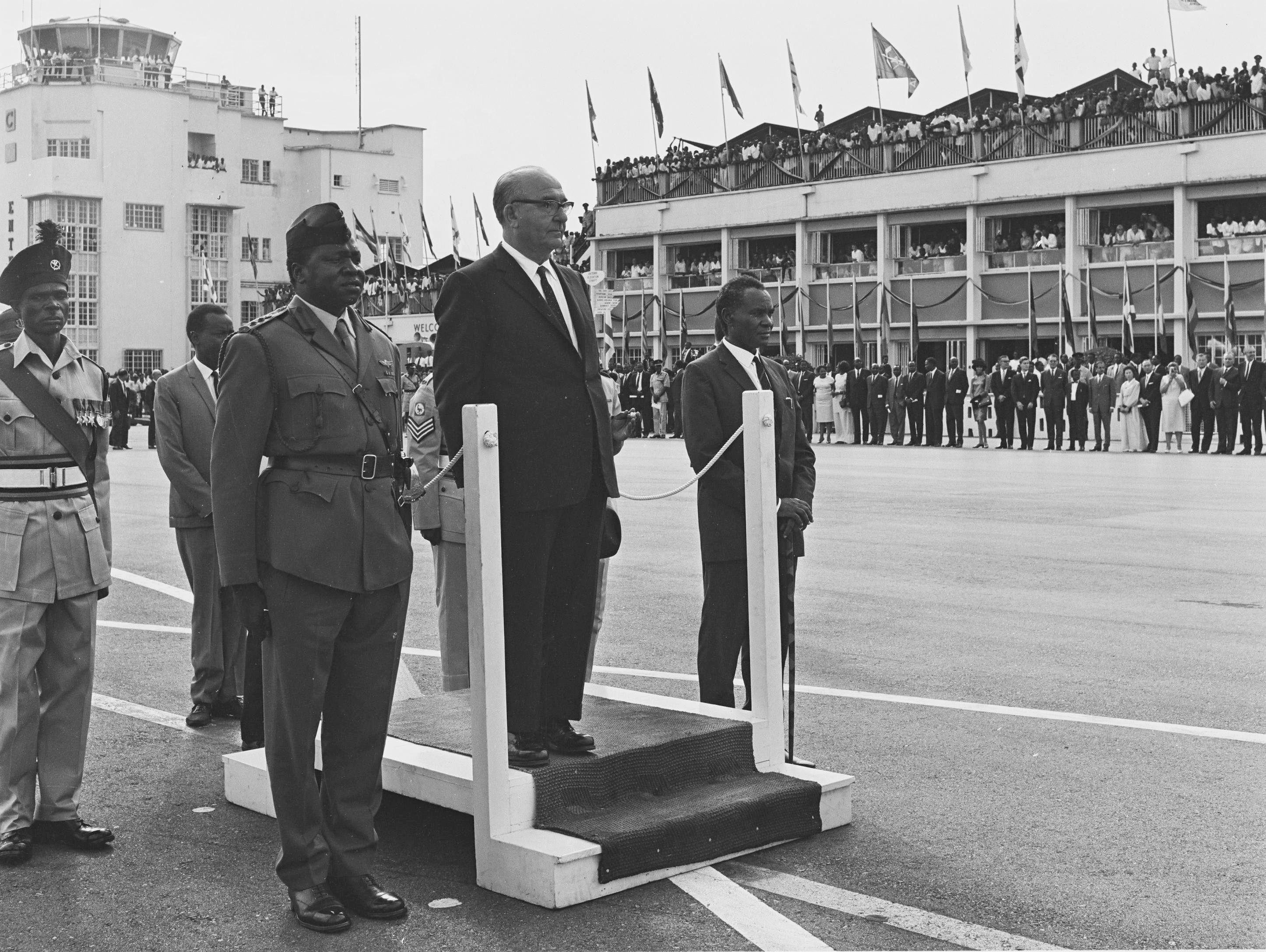|
Isaac Lumago
Isaac Lumago (1939 – 8 May 2012) was a Ugandan military officer who served as chief of staff for the Uganda Army from 1977 to 1978, and later became leader of the Former Uganda National Army (FUNA). Biography Isaac Lumago was born at Koboko in 1939. He was an ethnic Nubian, and a cousin of Idi Amin. Lumago worked as a customs official before being recruited into the Uganda Army in 1963 by British officers. After undergoing training at the Sudanese Military Academy in Omdurman, he was made a second lieutenant and posted to Moroto. He underwent additional training over the following years and received steady promotions. By 1971 he held the rank of captain, and he was supportive of Colonel Idi Amin's military coup that year. In 1974 he underwent training in the Soviet Union. Under Amin's rule Lumago became Minister of Industry and Power before—at the rank of colonel—being appointed Uganda's High Commissioner to Lesotho in 1975. Operating from Maseru, he also was given res ... [...More Info...] [...Related Items...] OR: [Wikipedia] [Google] [Baidu] |
Idi Amin
Idi Amin Dada Oumee (, ; 16 August 2003) was a Ugandan military officer and politician who served as the third president of Uganda from 1971 to 1979. He ruled as a military dictator and is considered one of the most brutal despots in modern world history. Amin was born in Koboko in what is now northwest Uganda to a Kakwa father and Lugbara mother. In 1946, he joined the King's African Rifles (KAR) of the British Colonial Army as a cook. He rose to the rank of lieutenant, taking part in British actions against Somali rebels and then the Mau Mau Uprising in Kenya. Uganda gained independence from the United Kingdom in 1962, and Amin remained in the army, rising to the position of major and being appointed commander of the Uganda Army in 1965. He became aware that Ugandan President Milton Obote was planning to arrest him for misappropriating army funds, so he launched the 1971 Ugandan coup d'état and declared himself president. During his years in power, Amin shifted from be ... [...More Info...] [...Related Items...] OR: [Wikipedia] [Google] [Baidu] |
Maseru
Maseru is the capital and largest city of Lesotho. It is also the capital of the Maseru District. Located on the Caledon River, Maseru lies directly on the Lesotho–South Africa border. Maseru had a population of 330,760 in the 2016 census. The city was established as a police camp and assigned as the capital after the country became a British protectorate in 1869. When the country achieved independence in 1966, Maseru retained its status as capital. The name of the city is a Sesotho word meaning "red sandstones". History Maseru was founded by the British as a small police camp in 1869, following the conclusion of the Free State–Basotho Wars when Basutoland became a British protectorate. Maseru is located at the edge of the "conquered territories" relinquished to the Orange Free State (now the Free State province of South Africa) as part of the peace terms. It was located west of Basotho King Moshoeshoe I's stronghold of Thaba Bosiu, the previous ''de facto'' capital. A bust ... [...More Info...] [...Related Items...] OR: [Wikipedia] [Google] [Baidu] |

